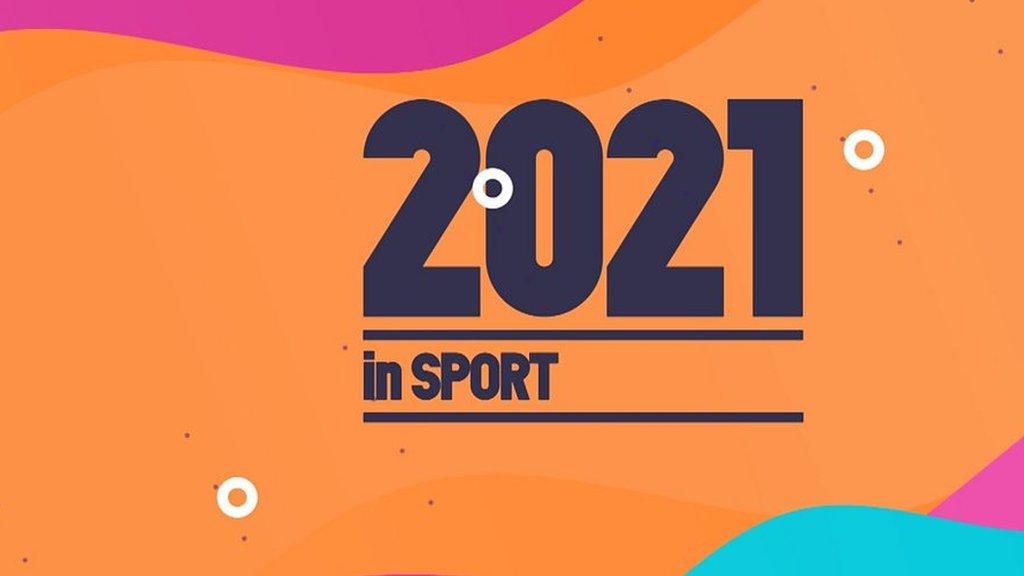Covid-19: How will athletes compete safely this summer?
- Published
- comments
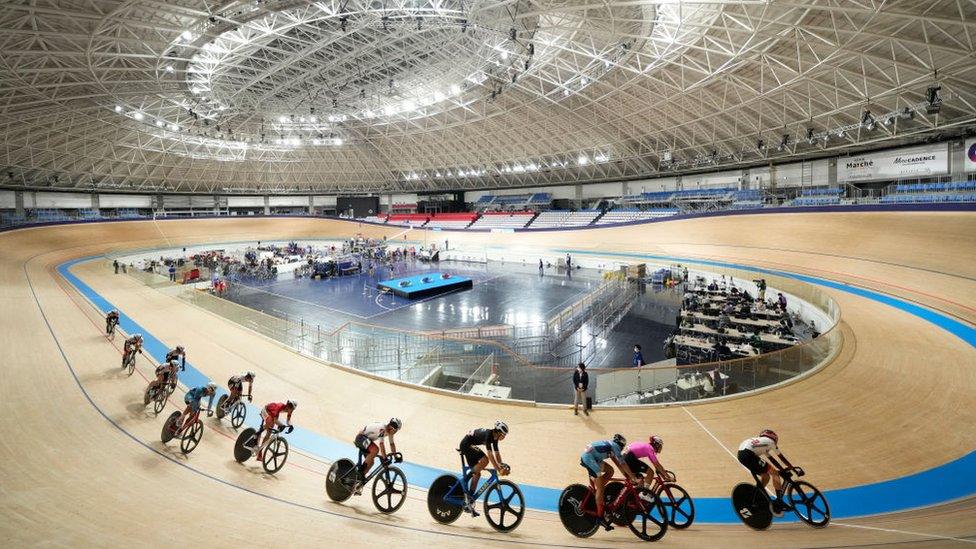
Lots of sporting events including the Olympics and Paralympics were postponed because of the coronavirus pandemic
It's set to be a summer of sport as athletes are gearing up for some pretty major competitions after last year's Wimbledon, Olympics and Euros were cancelled.
But things won't be totally normal. Officials are working hard to make sure big sporting events will be able to take place safely despite the ongoing coronavirus pandemic.
So, what will be in place? Read this to find out.
Wimbledon
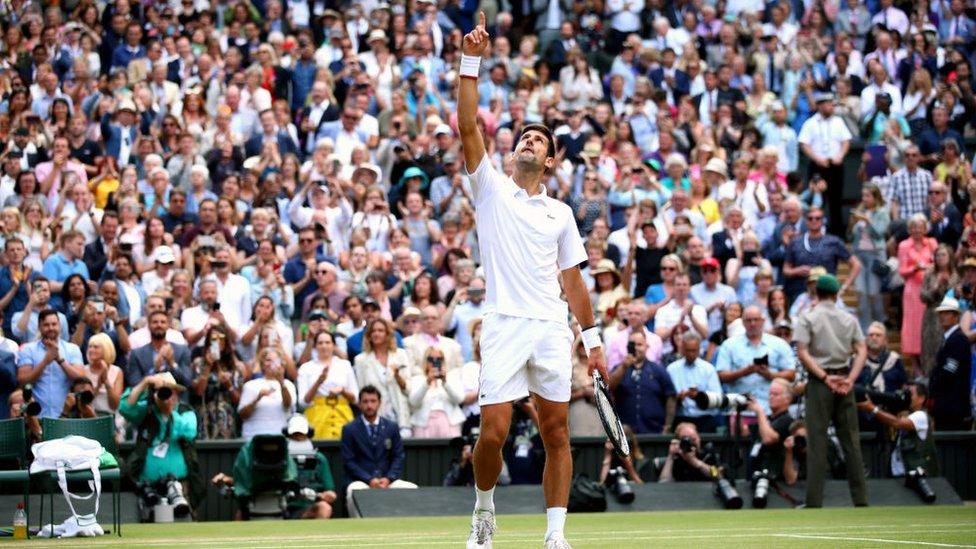
Novak Djokovic won the Wimbledon men's Singles final in 2019
The tournament was cancelled last year and is set to return on 28 June, seven days after all Covid restrictions could be lifted in England.
A final decision on the number of spectators allowed to watch will be delayed for as long as possible, with tickets due to go on sale in June.
The competitors will need to stay at a hotel in central London within a "biosecure bubble" for the duration of the championships.
Wimbledon officials are threatening players with disqualification and fines if they step outside the bubble.
There also might be restrictions on whether players' family and friends can attend.
Wimbledon champion Andy Murray said: "We've been told that the ticketing for Wimbledon is going to be vastly reduced for the players for family. It would be very odd playing at Wimbledon without, not just being able to see your family, but not having them there to support in the matches as well.
"That's the times we're living in. Hopefully, if we keep going with the vaccinations, there'll be a possibility for family members and friends that have been vaccinated to come in. If not, that's what it will have to be this year."
Olympics and Paralympics
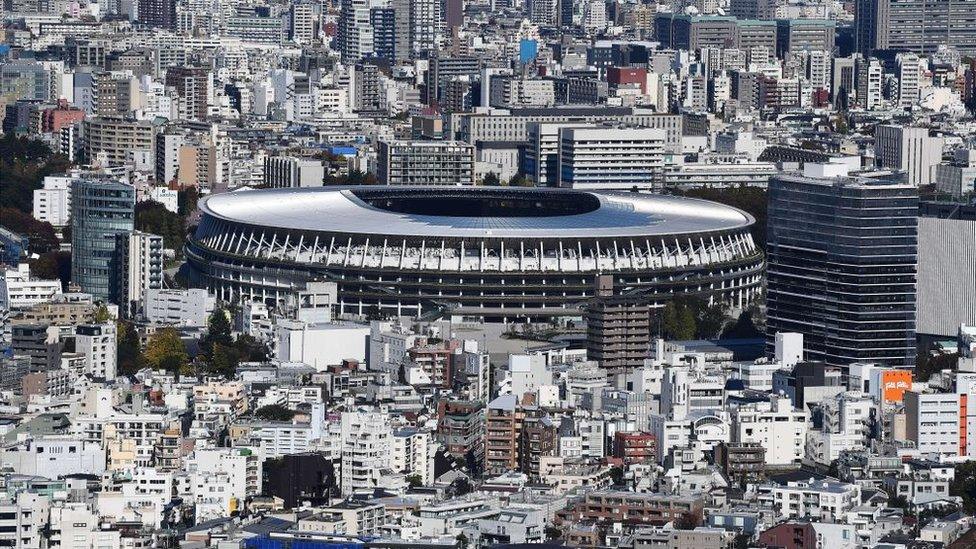
The Japan National Stadium which is the main Olympic stadium, was officially completed in November 2019
The postponed Olympic games are due to begin on 23 July and the Paralympics follow a month later, from 24 August.
No international fans will be allowed at either of the games this summer because of concerns over the coronavirus pandemic.
However, with more than 60,000 athletes, coaches, national team staff, media and other essential workers heading to Tokyo from more than 200 countries for the big events, it's going to be a pretty complex job keeping things safe.
A number of important measures will be put in place to ensure everyone remains safe throughout the games.
Everyone taking part will have to take two COVID-19 tests before flying to Japan if they're coming from abroad.
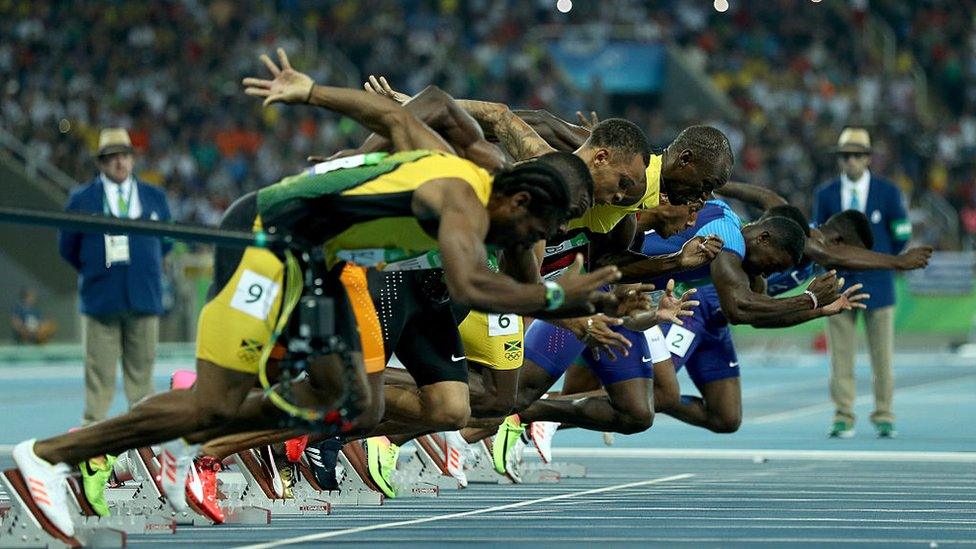
The last Olympic and Paralympic events were held in 2016
Athletes and those in close contact with them won't need to quarantine when they get to the Tokyo, but they will be tested daily.
No-one participating in the games will be allowed to use public transport and will instead travel around in dedicated Games vehicles. They'll also only be able to eat in specific places including catering facilities at Games venues, their accommodation's restaurants or their rooms.
Mask wearing, social distancing and hand washing will continue.
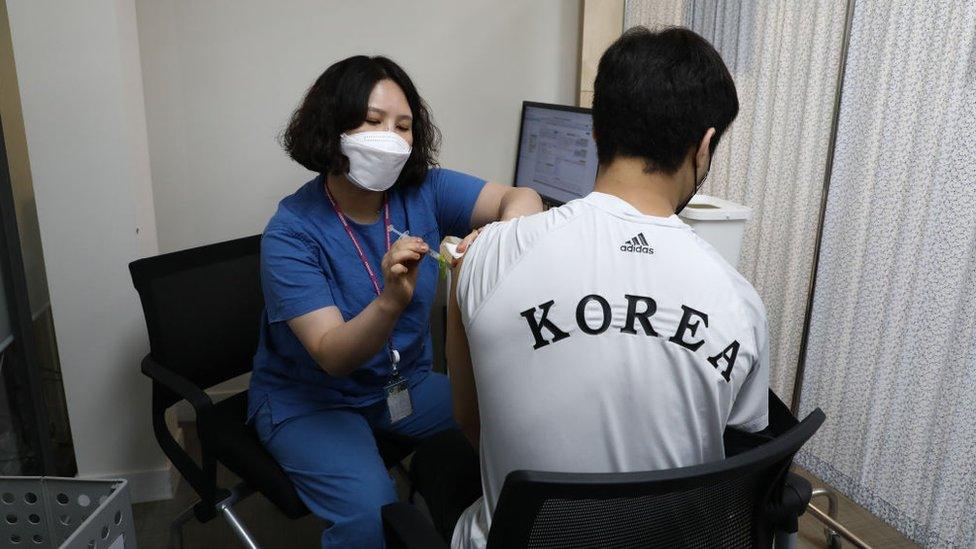
South Korea has started its Covid-19 coronavirus vaccination for its Tokyo Olympics and Paralympics Team
Some countries are looking to ensure their athletes are fully vaccinated ahead of the Olympic and Paralympic Games. Australia has prioritised athletes heading to Japan and members of the USA team have also been told they can expect to get the jab soon.
Team GB is hopeful its athletes will be fully vaccinated for Tokyo, but the government has yet to confirm this.
"It remains our ambition to get our Olympians and Paralympians fully vaccinated before Tokyo and we're working very closely with Government bring that about," Sir Hugh Robertson, who is the chair of the British Olympic Association (BOA), told the Daily Telegraph.
The UEFA European Football Championship
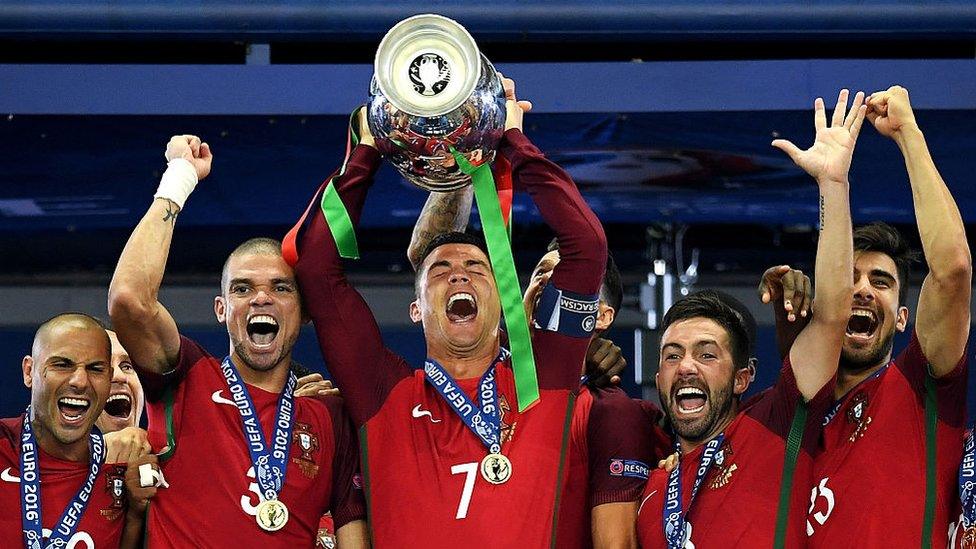
Portugal won the last Euros which took place in 2016
Euro 2020 was also delayed due to the coronavirus pandemic. This year's Euros start on 11 June and consist of 51 matches in 11 cities across Europe, with the highlight of the group stage coming on Friday, 18 June when England host Scotland at Wembley.
Some matches have been reallocated to other venues because of Covid-19 issues.
All stadiums will allow fans to attend the matches, but most will be at a reduced capacity.
Each ticket holder will be assigned a dedicated 30-minute entry time slot to arrive at the stadium. They will also need to wear a face mask at all times. Other measures may include temperature checks or COVID-19 rapid tests, but every stadium will be a little bit different.
The details of what footballers will be required to do to keep Covid-safe during the Euros are coming soon.
The County Championship
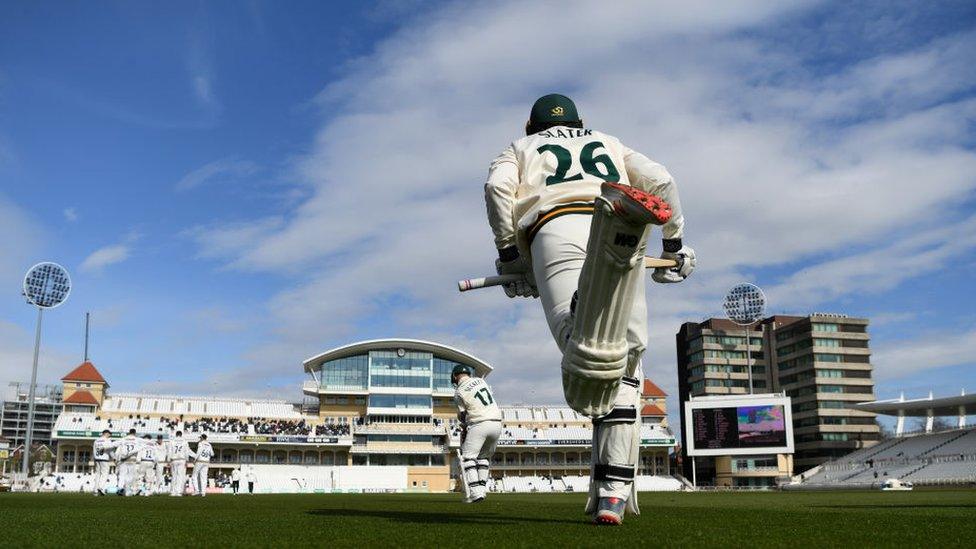
The 18 teams will be split into three groups this year
The County Championship, organised by the England and Wales Cricket Board (ECB), had to be postponed last year because of the pandemic.
However, this year's championship has now begun and will continue until October.
With restrictions slowly being lifted in England and Wales, it means fans can once again look forward to a full season of domestic cricket, although things are going to look a little bit different.
County cricketers will be regularly tested for Covid and there will be restrictions on their movement to limit the chances of the virus spreading.
Fans currently aren't allowed to attend games, although the ECB is exploring various measures which could allow spectators back into grounds including social distancing, masks and coronavirus passports.
- Published11 June 2021

- Published12 January 2021
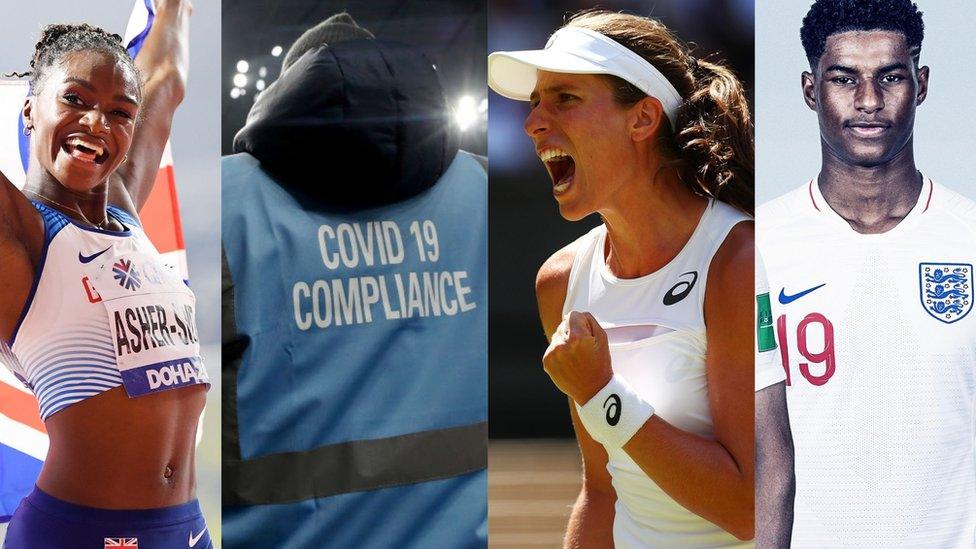
- Published10 February 2021
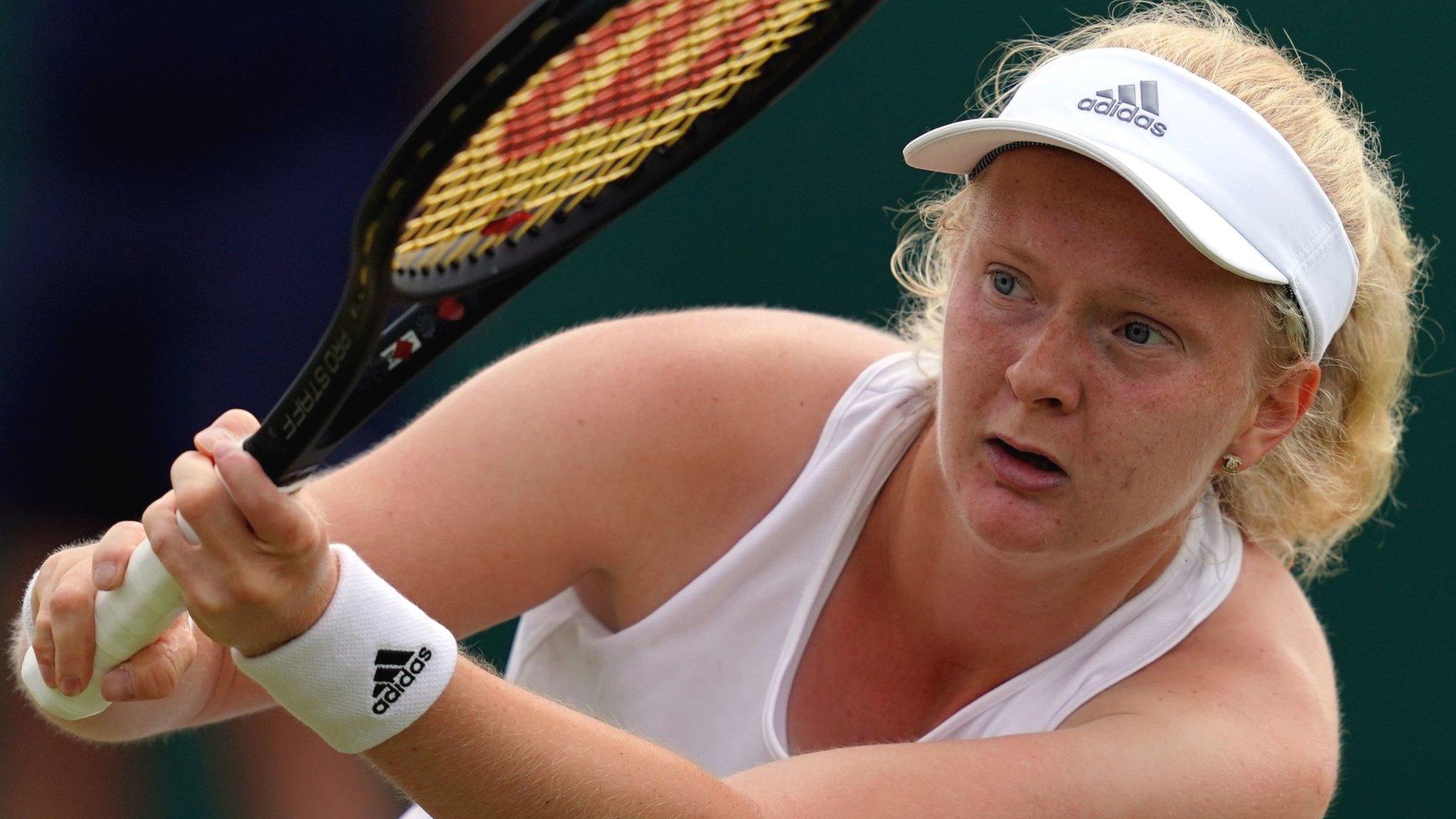
- Published9 January 2021
